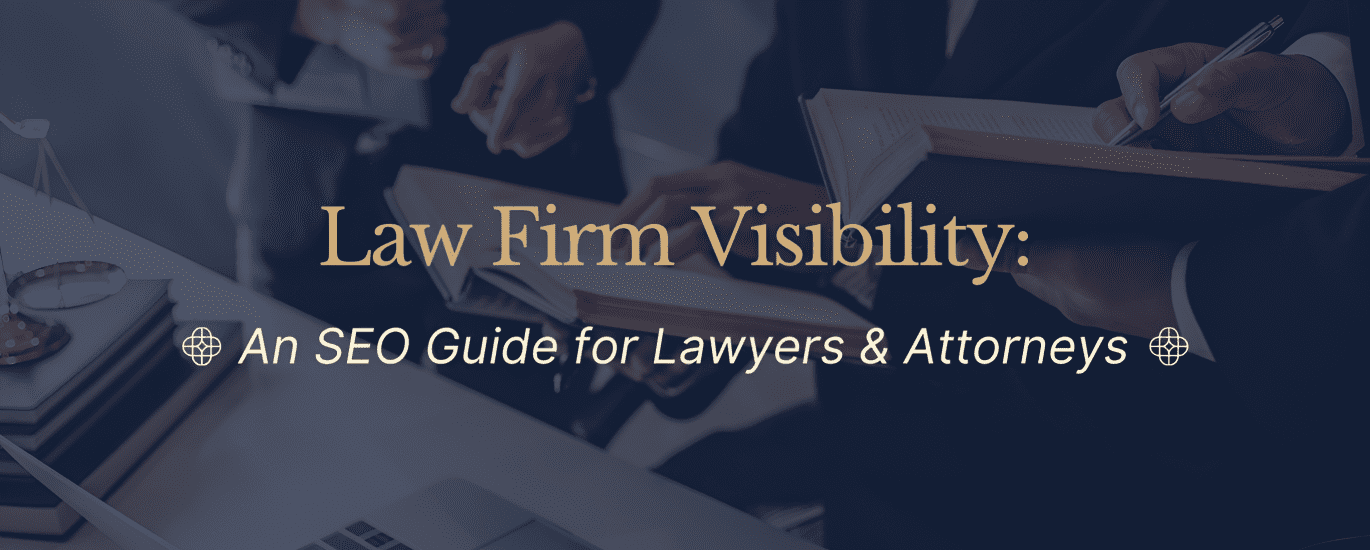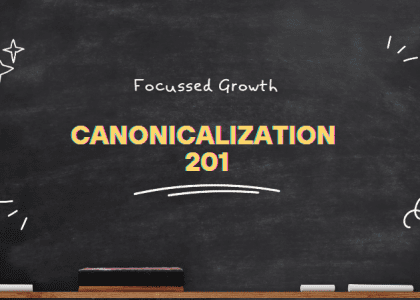The Digital Visibility Challenge for Legal Services
In today’s saturated legal marketplace, digital visibility presents a formidable challenge. With approximately 430,000 legal firms and over 1.3 million practicing attorneys competing for attention in the United States alone, establishing meaningful online presence requires sophisticated strategy beyond conventional marketing approaches.
This intense competition necessitates implementation of advanced search engine optimization (SEO) methodologies to achieve prominent visibility in organic search results without excessive reliance on paid advertising channels. When properly executed, strategic SEO enables law practices to outperform competitors in search rankings, generate consistent inquiry volume, and cultivate a sustainable client acquisition pipeline.
Key Insights
The legal industry is highly competitive, with over 430,000 legal firms and1.3 million practicing attorneys in the U.S.
SEO for law firms enhances search engine rankings, builds credibility, attracts leads, and helps firms stand out in a saturated market.
Local SEO can be initiated by optimizing your Google Business Profile with location-based keywords and ensuring consistency across online directories for better local search visibility.
Google’s E-E-A-T framework emphasizes expertise, authority, and trustworthiness. Law firms can improve rankings by showcasing credentials, client reviews, awards, testimonials, and thought leadership on their websites.
Technical SEO ensures better visibility by optimizing for faster page load times, mobile responsiveness, and error-free pages—enhancing the overall user experience.
Strategic Value of SEO in Law Firm Development
The implementation of legal SEO delivers multiple strategic advantages for practice growth:
- Sustainable Organic Traffic Generation: Development of non-paid traffic channels that deliver consistent lead flow
- Authority and Credibility Enhancement: Elevated search positions signal professional authority to prospective clients
- Trust Establishment: Strategic visibility in search results cultivates initial trust before direct contact
- Competitive Differentiation: Properly optimized practices capture market share from less digitally sophisticated competitors
- Cost-Effective Client Acquisition: Long-term organic visibility reduces dependence on increasingly expensive paid legal advertising
Distinctive Characteristics of Law Firm SEO
Legal SEO presents unique challenges and opportunities compared to other professional service categories:
- Geographic Competition Intensity: Legal services typically face heightened local competition requiring sophisticated location-based optimization
- Practice Area Specialization: Effective legal SEO requires niche-specific keyword strategies aligned with practice specialties
- High-Intent Search Terminology: Legal searches often indicate immediate service need (e.g., “DUI attorney near me”) requiring conversion-optimized experiences
- Regulatory Compliance Requirements: Legal advertising guidelines impose additional constraints on optimization approaches
- Elevated Trust Requirements: Professional service selection demands substantial credibility signals throughout the digital experience
SEO Implementation Framework for Law Firms
Intent-Aligned Keyword Strategy Implementation
Effective keyword selection requires alignment with the full spectrum of search intent categories:
Navigational Intent
- Search Characteristics: Users seeking specific firms, locations, or practitioners
- Example Queries: “[Firm Name],” “personal injury attorney Chicago”
- Optimization Approach: Geographic and brand-focused terminology integration
Transactional Intent
- Search Characteristics: Users prepared to engage legal representation
- Example Queries: “hire divorce lawyer,” “schedule legal consultation”
- Optimization Approach: Service page enhancement with conversion elements
Commercial Intent
- Search Characteristics: Users comparing legal service providers
- Example Queries: “best criminal defense attorney,” “top family law firms”
- Optimization Approach: Credential highlighting and differentiation content
Informational Intent
- Search Characteristics: Users researching legal concepts prior to engagement
- Example Queries: “legal rights after workplace injury,” “divorce process in [state]”
- Optimization Approach: Educational content development addressing preliminary questions
Comprehensive strategy requires content development addressing each intent category with appropriately structured pages and conversion pathways.
Geographically-Centered Optimization Framework
Geographic practice area optimization represents a critical component for legal practices, with implementation priorities including:
- Google Business Profile Optimization:
- Comprehensive profile completion with practice area specialties
- Professional photography of attorneys and offices
- Regular posting of practice updates and legal developments
- Strategic review acquisition and response protocols
- Verification of all practice locations with consistent information
- Citation Consistency Management:
- Standardization of name, address, phone number (NAP) information across directories
- Strategic inclusion in legal-specific directories and citation sources
- Regular audit of citation accuracy and consistency
- Localized Content Development:
- Creation of jurisdiction-specific practice area pages
- Development of location-based landing pages for multi-location practices
- Integration of local legal concerns, regulations, and case outcomes
- Commentary on regional legal developments affecting practice areas
- Geographic Keyword Integration:
- Incorporation of location terms in page titles, meta descriptions, and headers
- Natural integration of geographic terminology within content
- Structured data implementation for geographic relevance signals
Develop a Local SEO Strategy
Local SEO is crucial for the legal industry. Fortunately, there are several actionable steps that legal firms can take to enhance their local SEO efforts. Here’s how to get started:
- Optimize Your Google Business Profile (GBP): Ensure your profile is complete with accurate details, reviews, practice areas, and photos of your team and office(s). Verify new profiles and keep contact information and operating hours updated regularly.
- Maintain Consistent Local Citations: Ensure your firm’s name, address, and phone number are accurate across all legal directories and listings.
- Create Locally Relevant Content: Use your blog or local page to publish case studies, discuss local legal news, offer general legal advice, and address issues affecting the legal rights of people in your area.
- Incorporate Location-Based Keywords: Include keywords that reflect navigational intent, such as “Manhattan personal injury lawyer,” in your content and optimizations to target local searchers effectively.
Experience, Expertise, Authority and Trustworthiness Development
Google’s E-E-A-T evaluation framework holds particular significance for legal practitioners as “Your Money or Your Life” (YMYL) content providers. Implementation priorities include:
- Experience Demonstration:
- Case outcome statistics and successful representation metrics
- Documentation of practice longevity and professional milestones
- Client engagement volume and satisfaction measurements
- Subject matter expertise development through specialized practice
- Expertise Validation:
- Attorney biographical content highlighting educational credentials
- Publication of specialized certifications and advanced qualifications
- Continuing legal education achievements and specializations
- Thought leadership content demonstrating practical expertise
- Authority Establishment:
- Media citations and appearances documentation
- Scholarly publications and legal analyses
- Speaking engagements and professional presentations
- Leadership positions within legal organizations
- Trustworthiness Indicators:
- Client testimonials and case study content
- Professional ethics certifications and standards compliance
- Association memberships and industry affiliations
- Transparent communication of practice values and methodologies
Content quality factors require particular attention:
- Current Information: Regular review and updating of legal information
- Accessible Presentation: Strategic formatting enhancing readability
- Technical Accuracy: Careful fact-checking and legal precision
- User-Friendly Design: Logical content organization and intuitive navigation
- Visual Enhancement: Strategic use of diagrams, charts, and illustrations
Strategic Authority Development Through Link Acquisition
Authoritative external links represent critical ranking factors. Recommended acquisition approaches include:
- Legal Directory Participation: Strategic presence in respected legal directories with comprehensive profiles
- Media Relationship Cultivation: Positioning attorneys as subject matter experts for media commentary
- Guest Publication Program: Developing opportunities for publication in respected legal journals and websites
- Local Business Network Development: Participation in chambers of commerce and regional business associations
- Professional Association Engagement: Active membership in legal organizations with digital presence
- Content Development Strategy: Creation of reference-worthy content that naturally attracts citations
Measurement protocols should include regular link portfolio analysis through Google Search Console or specialized SEO platforms, with attention to:
- Link Quality Assessment: Evaluation of referring domain authority
- Link Diversity Analysis: Distribution across various relevant sources
- Competitive Link Gap Analysis: Identification of competitor link sources
- Link Acquisition Velocity: Measurement of natural growth patterns
Professional Social Media Integration
Strategic social media utilization supports broader SEO objectives through:
- Platform Selection Strategy: Prioritization based on audience characteristics
- LinkedIn for professional networking and B2B relationships
- Facebook for community engagement and local awareness
- Instagram for visual practice storytelling and culture demonstration
- TikTok for simplified legal education content
- Implementation Priorities:
- Strategic posting schedule with consistent frequency
- Professional brand presentation across platforms
- Active engagement with followers and connections
- Video content development explaining complex legal concepts
- Trend monitoring and appropriate participation
- Measurement Framework:
- Engagement metrics tracking
- Referral traffic analysis
- Conversion pathway monitoring
- Audience growth measurement
Technical Infrastructure Optimization
Technical SEO fundamentals significantly impact search visibility through:
- Page Performance Enhancement:
- Image optimization for faster loading
- Script minification and consolidation
- Hosting environment optimization
- Content delivery network implementation
- Mobile Experience Refinement:
- Responsive design verification
- Touch element sizing and spacing
- Content reorganization for mobile contexts
- Performance testing across devices
- Site Architecture Optimization:
- Logical content hierarchy
- Strategic internal linking
- Crawlability enhancement
- Taxonomy implementation
- Error Identification and Resolution:
- Broken link detection and repair
- Crawl error monitoring and correction
- Redirect management
- 404 error remediation
- Security Protocol Implementation:
- HTTPS certification
- Privacy policy compliance
- Data security measures
- Cookie consent implementation
Technical optimization supports core user experience metrics which directly influence search ranking performance and conversion rates.
Client Feedback Management
Client reviews serve multiple functions in search visibility and reputation management:
- Social Proof Development:
- Trust building through demonstrated client satisfaction
- Practice credibility enhancement
- Service quality validation
- Search Ranking Signals:
- Local search ranking factor influence
- Google Business Profile optimization
- Sentiment analysis signals
Strategic review acquisition approaches include:
- Post-Representation Communications: Systematic outreach to satisfied clients
- Client Experience Surveys: Structured feedback collection processes
- Review Platform Diversification: Distribution across multiple relevant platforms
- Response Protocol Development: Professional engagement with all feedback
- Negative Review Resolution: Constructive addressing of concerns
Performance Analysis Framework
Comprehensive analytics implementation enables data-driven strategy refinement through monitoring:
- Keyword Position Tracking:
- Practice area search term monitoring
- Geographic variation analysis
- Competitor position comparison
- Organic Traffic Analysis:
- Non-paid search acquisition measurement
- Traffic quality evaluation
- Behavioral metrics assessment
- Conversion Pathway Analysis:
- Client acquisition attribution
- Consultation request tracking
- Contact form submission analysis
- Technical Performance Monitoring:
- Core Web Vitals measurement
- Mobile usability tracking
- Crawl statistics analysis
Regular performance evaluation (monthly recommended) provides the foundation for strategic refinement and resource allocation decisions.
Conclusion: Strategic Imperative for Modern Law Firms
In the contemporary legal services marketplace, sophisticated SEO implementation represents not merely a marketing tactic but a fundamental practice development strategy. The demonstrable economics of legal SEO deliver exceptional returns through:
- Sustainable client acquisition channels independent of ongoing advertising investment
- Enhanced practice authority positioning in increasingly competitive markets
- Strategic capture of high-value cases through precise targeting
- Practice equity development through transferable digital assets
Practice leaders who implement comprehensive SEO strategies position their firms for sustainable growth, market share expansion, and long-term competitive advantage in an increasingly digital-first client acquisition environment.
The question is no longer whether to invest in strategic SEO, but rather how quickly implementation can begin to capture available market opportunities before competitors establish insurmountable digital advantages. If you’re ready to take the next tep, schedule your complimentary strategy session with us today






